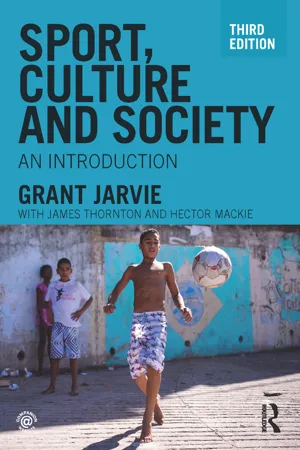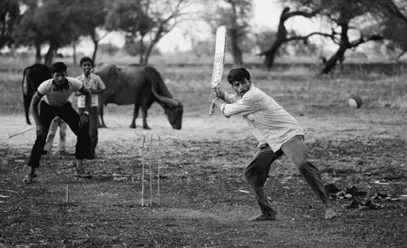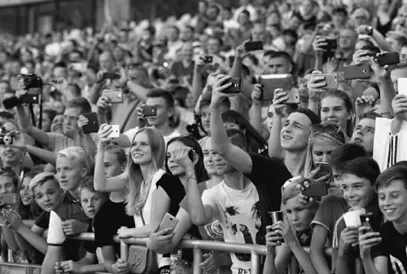
- 552 pages
- English
- ePUB (mobile friendly)
- Available on iOS & Android
About this book
What can sport do to produce social change in our world today? It is impossible to fully understand contemporary society and culture without acknowledging the importance of sport. Sport is part of our social and cultural fabric, possessing a commercial power that makes it a potent force in the world, for good and for bad. It has helped to start wars and promote international reconciliation, and governments around the world commit public resources to sport.
Sport matters, but how should you make sense of what is going on in the world of sport today?
Now in a fully revised, updated and expanded third edition, this critical, challenging and comprehensive textbook introduces the study of sport, culture and society. International in scope, it challenges us to reactivate an audacious spirit of activism through sport. Full of contemporary examples, it places sport at the heart of the analysis and introduces the reader to every core topic and emerging area in the study of sport and society, including:
- the history and politics of sport;
- sport, gender and sexuality;
- sport, disability and advocacy;
- sport, race and racism;
- sport, violence and crime;
- sport and health;
- sport, globalisation and democracy;
- sport, media and cultural relations;
- sport and the environment;
- sporting cities and mega-events;
- sport, poverty and development.
Each chapter includes a wealth of useful features, including Sport in Focus case studies, chapter summaries, guides to further reading, revision questions, practical projects, definitions of key concepts and weblinks. Additional teaching and learning resources – including a testbank, resource list and glossary – are available on a companion website.
Sport, Culture and Society is the most broad-ranging, in-depth and thoughtful introduction to the sociocultural analysis of sport currently available and sets a new agenda for the discipline. It is essential reading for all students with an interest in sport.
Frequently asked questions
- Essential is ideal for learners and professionals who enjoy exploring a wide range of subjects. Access the Essential Library with 800,000+ trusted titles and best-sellers across business, personal growth, and the humanities. Includes unlimited reading time and Standard Read Aloud voice.
- Complete: Perfect for advanced learners and researchers needing full, unrestricted access. Unlock 1.4M+ books across hundreds of subjects, including academic and specialized titles. The Complete Plan also includes advanced features like Premium Read Aloud and Research Assistant.
Please note we cannot support devices running on iOS 13 and Android 7 or earlier. Learn more about using the app.
Information
Part 1
The broader context
INTRODUCTION
SPORT THEORY AND THE PROBLEM OF VALUES
SPORT, HISTORY AND SOCIAL CHANGE
SPORT, ECONOMICS AND WEALTH
SPORT, DEVELOPMENT AND PEACE
SPORT, POLITICS AND CULTURE
Chapter 1
Sport, theory and the problem of values

The world of rural village boys playing cricket in India is different from the world of the many sporting ambassadors who champion different social and political causes. Many sporting worlds exist, but how should an approach that enables and talks to so many different sporting worlds be framed and explained?

PREVIEW

OBJECTIVES

KEY TERMS DEFINED
INTRODUCTION
Table of contents
- Cover
- Half Title
- Title Page
- Copyright Page
- Dedication
- Table of Contents
- List of Sport in Focus boxes
- Acknowledgements
- Abbreviations
- Introduction
- Part 1 The broader context
- Part 2 Global sport and community
- Part 3 Sport and contemporary social issues
- Part 4 Sport as a resource of hope and the politics of the possible
- Conclusion: Theses on sport, culture and society
- Bibliography
- Index